For the past seven years, Aldaberto and his wife Liliam have welcomed over 250 migrant children into their home. First in New York and then when they moved to Florida two years ago, they continued their involvement in the foster care system.
Aldaberto serves others for a living too, as a veteran peer support specialist. He works largely with amputees.
Children never stay for long, Aldaberto told The Dispatch. But it doesn’t take long for them to become family to the couple. They have four extra beds and a backyard. Just as important are the park just a few steps from their backyard, the trips to swimming pools, and the stops at food trucks.
The kids, who usually range from 3 to 17 years old, quickly grow to call him Tío (Uncle) Aldaberto, and Liliam becomes Tía. They tag along with Tío to the international market to pick up groceries, then clamor to help Tía cook when they get home. Liliam keeps seasoning blends on hand tailored to make the children feel at home—be that Guatemala, Honduras, or Mexico.
After three weeks, or sometimes as long as three months, the kids leave. Sometimes they reunite with their sponsors—typically an aunt, uncle, or parent. Aldaberto says many stay in touch, and he has been able to see videos of their reunion with their relatives. The videos, he said, bring tears to his eyes. Sometimes, after their immigration hearings, they are sent back to their country of origin.
Aldaberto is no stranger to the immigrant experience. He grew up in the Dominican Republic in a poor family. Though he has now called America home for over 50 years, he’s never forgotten what his parents drilled into him: “My father and my mom always said to give back.”
Last week, two boys who were staying with them were reunited with their father who already lives in the United States. “It's hard once kids leave, but once you see them reunite with their loved ones, that’s when you know you’ve done your job,” Aldaberto said.
But the pair soon may no longer be able to foster migrant children if Gov. Ron DeSantis, a Republican, sticks by an executive order keep the state from working with the federal government to care for unaccompanied alien children (UACs).
In September, DeSantis issued an order forbidding the Florida Department of Children and Families (DCF) from issuing or renewing the licenses of family foster homes, residential child-caring agencies, or agencies that care for unaccompanied migrant children and teenagers, and prohibiting them from accepting new unaccompanied migrant children.
The order says that no state agency may “provide support or resources” to any entity that works with “aliens apprehended at the Southern Border who do not have lawful status.”
Foster parents, childcare facilities, and a coalition of evangelical Christians and other faith leaders involved with the foster care system have blasted the order. Faith leaders told The Dispatch that the move raises religious freedom concerns, runs afoul of federal law, and may result in unsafe conditions for an already vulnerable group of kids.
The governor’s order does not revoke existing licenses for now, but representatives of child care facilities and foster families say they must renew their state licenses annually. The possibility of denials down the roads leaves their continued operation in the state in doubt.
A month after the governor’s initial order, the Dream Center, a federally funded facility in Sarasota, was forced to relocate 60 migrant children when the state refused to issue a renewal for its license. Its umbrella organization, Lutheran Services Florida, sued DCF. On the eve of a court hearing, the state renewed the license but offered no public explanation. The Dream Center, which obtained a license during the Trump administration’s tenure, has cared for 290 unaccompanied children since November 2020, according to the Tampa Bay Times.
Soon after that, DCF issued a new emergency rule giving childcare facilities a 45-day window, which closed earlier this month, to stop accepting new UACs. The rule said the state’s policy on whether to approve licenses would be based on whether shelters could demonstrate “evidence of need.” The emergency order also said the state would only issue or renew licenses contingent on several demands the state made of the Biden administration.
DeSantis framed the care of migrant children as competing with the foster care system for American children.
“I want our resources focused on the needs for Florida kids and the needs we have in our communities,” DeSantis told reporters in December. “These are people who are coming from other countries, they shouldn’t be allowed into this country.”
But the facilities that care for unaccompanied migrant children get federal funding—and thus do not drain the state’s coffers. They also operate separately from locations that serve other foster youth but require the same license.
The Dispatch asked the DeSantis administration what state resources were involved with the program but did not hear back by time of publication.
“We don’t believe this program competes with traditional foster care in Florida,” Nate Bult, senior vice president of public and government affairs at Bethany Christian Services, told The Dispatch. He added that the alternative—large, unlicensed influx facilities run by the federal government—“are not in the best interest of kids.”
Bult doesn’t think it likely that refusing to license shelters would deter migrants from crossing the U.S.-Mexico border: “If these licensed beds go away, these children are still coming.”
Bult said that faith-based organizations have been doing the work of caring for unaccompanied migrant children, largely unremarked and with bipartisan support, for years. “This was a fairly sleepy program away from the public eye for a long time,” he said. But a shift happened when the family separation policy carried out under the Trump administration in 2018 thrust the issue “into the political spotlight.”
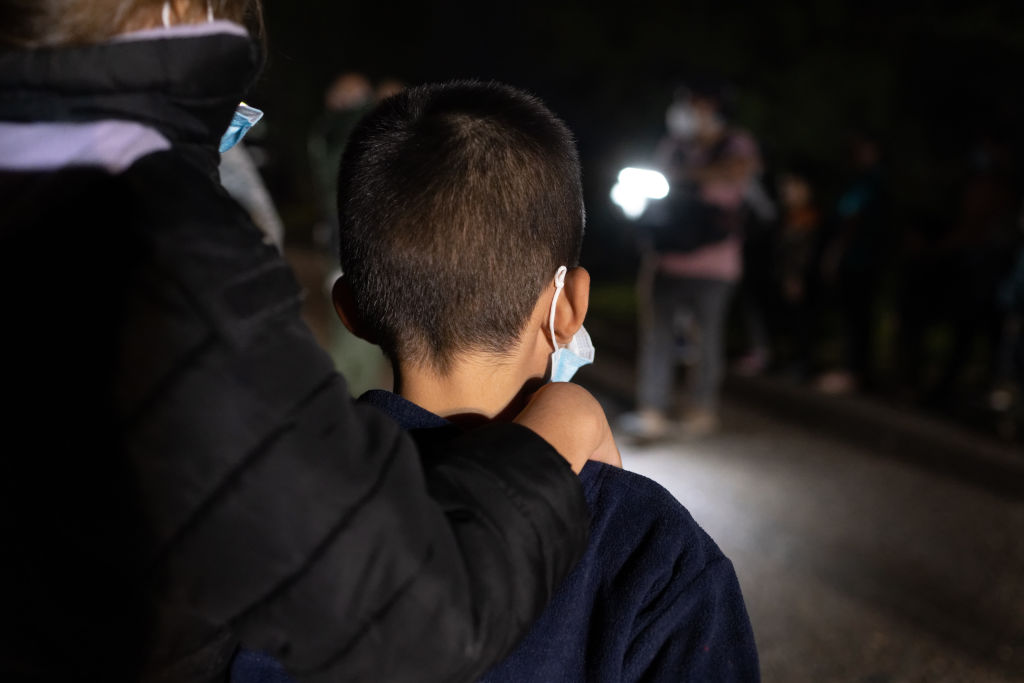
DeSantis, possibly gearing up for a presidential run in 2024, has fought the Biden administration on its immigration policies, including this issue. Florida’s general counsel accused the Biden administration of running a “human trafficking scheme” by loosening immigration laws at the U.S.-Mexico border and said DCF would not participate in what it called the “highly flawed federal program” until it reinstated Trump-era policies.
DeSantis also wants the federal government to give Florida advance notice of when unaccompanied minors are coming to the state, criminal history checks of the minors, verification of their age, and records of coronavirus immunizations, among other conditions.
His administration has highlighted a case of an alleged murderer, an illegal immigrant from Honduras. Yery Noel Medina Ulloa, 24, is accused of killing Francisco Javier Cuellar after initially lying to authorities about being a minor and giving a fake name.
In an email to The Dispatch, DeSantis press secretary Christina Pushaw praised the Trump administration’s Migration Protection Protocols, also known as the “Remain in Mexico” policy, and criticized the Biden administration for “haphazard” enforcement of it. The policy allows the government to return asylum-seekers encountered at the border to Mexico while they await an immigration court hearing.
She added that the DeSantis administration wanted advance notice about resettlement in the state: “It is absurd to expect the state to provide resources and facilities for aliens when the federal government has not given the state any notice or information in advance about their clandestine migrant resettlement activities.”
She contrasted the way the UAC program operates with the way Afghan refugee resettlement was handled: “The federal government communicated with the state in advance to specify the number of Afghan refugees (relatively small) and the cities where they would be sent. Is this level of communication about UACs too much to expect? Because we have been denied basic information along these lines.”
President Joe Biden has maintained several Trump-era immigration policies. He temporarily suspended, then terminated the Remain in Mexico program. But after court challenges in a Texas district court, the administration resumed the program in December 2021. Biden has also continued the public health order Title 42, which the Trump administration implemented at the start of the COVID-19 pandemic to expel migrants across the border to Mexico. But last February the Biden administration exempted children from Title 42 expulsion.
Melissa Marantes, executive director of the Orlando Center for Justice, works to provide legal representation to UACs and other immigrants. She questions why, if the DeSantis administration has problems with the Biden administration’s immigration policies, it’s putting kids in the middle.
“I’m concerned at why the goal was to go after small children,” she told The Dispatch. “These facilities have been licensed for many many years … and why now is there all of a sudden an issue with it?”
The Homeland Security Act of 2002 gave the Office of Refugee Resettlement (ORR) within HHS responsibility for caring for migrant children. ORR’s network includes about 200 state-licensed children's shelters, with 22 states participating in the program.
The departments of Homeland Security, HHS, and Justice all take part in handling UACs. Customs and Border Patrol typically first encounters an unaccompanied child but can only hold him or her for up to 72 hours. After that, HHS takes responsibility until the child is reunited with a sponsor or relative already in the United States, or deported back to his or her country of origin.
Federal law allows for unaccompanied migrant children from Mexico to voluntarily return if they don’t fear harm and have not been trafficked. Unaccompanied minors from El Salvador, Guatemala, and Honduras are sheltered in the United States to await removal proceedings in immigration courts.
The 1997 Flores Settlement Agreement established the federal standards for care of UACs and required third-party facilities that care for migrant children to contract with the federal government and obtain state licenses.

Overflow facilities—which are supposed to be temporary shelters—are an exception to state licensing requirements. To deal with a surge of unaccompanied children at the border, the Obama, Trump, and Biden administrations have all used these shelters. But shelters in the Fort Bliss Army base in Texas and elsewhere drew criticism when reports emerged last year that conditions for kids were unsanitary, overcrowded, and causing illness to spread. Authorities shut down another temporary shelter in a Houston warehouse after kids were served undercooked food, couldn’t access showers regularly, and reportedly were self-harming due to distress.
State-licensed facilities are key, advocates told The Dispatch, in avoiding situations like that.
“It would be one thing if these religious organizations are breaking a law of some sort, but they’re not,” Matthew Soerens, national coordinator for the Evangelical Immigration Table, told The Dispatch. “To have the state government and federal government sort of fighting over the program, it’s faith-based organizations that actually do the work, and the people who will suffer are some of the most vulnerable people in the world.”
Soerens also characterized the DeSantis rule as an infringement on faith groups’ religious liberty. “Whenever you’re having any level of government getting in the way of churches or individual Christians who want to serve as foster parents, or Christian ministries like Bethany or Catholic bishops that run several Catholic charities … their mission to protect children out of the motivation of their faith.”
In a December 23 letter, the Biden administration said DeSantis’ executive order raised “serious legal concerns” and said it couldn’t agree to individual reviews for each UAC.
In a statement to The Dispatch, an HHS spokesperson said that the department is “currently examining all the legal options available at its disposal to ensure that our shelters continue to provide services to the unaccompanied minors in our care. We will take every step needed to support our partners and ensure that the children under our care are in a safe and secure environment.”
Florida currently has around 16 licensed shelters. From October 2021 to December 2021, 3,597 children were released to sponsors in Florida, according to HHS data. Before release, sponsors undergo background checks, including a criminal public records check and typically a sex offender registry check, according to ORR.
Florida is not the first state to put migrant children in the middle of a spat between a GOP governor and the White House. Texas GOP Gov. Greg Abbott implemented an emergency order last May that revoked the licenses of shelters that cared for UACs. He said that the housing of UACs negatively affected facilities that “serve Texas children in foster care.” He also blamed the Biden administration’s immigration policies.
After considerable pressure from the faith community and others, the Texas Health and Human Services Commission issued an emergency rule in July that allowed shelters to continue to operate in the state without licenses. According to the Texas Tribune, over 40 facilities in Texas that contract with the ORR are still operating.
Soerens noted that if the DeSantis administration sticks to its guns, shelters may have to choose whether to give up their federal partnership if they want to keep their state license. “Some of them might choose not to do that,” he said. “And that’s going to harm Florida in the end. Florida does not have enough foster parents as it is without taking anyone out of the system.”
If Florida agencies that work with unaccompanied migrant children leave the system, families could continue fostering domestic kids. But if the state withdraws a license from an organization that serves both domestic foster care and unaccompanied migrant children, that organization will be unable to serve either.
More than 200 faith leaders and Florida constituents urged DeSantis to reconsider in a letter last month: “As a governor who frequently speaks out on religious pro-life convictions and a father yourself, we implore you to reconsider your decision. Vulnerable children, regardless of where they are born, have the right and inherent dignity to receive love and care.”
One signer of the letter is Bri Stensrud, director of Women of Welcome, a group of 130,000 evangelical women who advocate for immigrants and refugees.
“You have a governor that says that he’s a man of faith. He says that he’s a pro-life governor. And yet he is asking people of faith, who run a large share of these shelters, to pick between vulnerable kids,” Stensrud told The Dispatch. “You can’t force people of faith to pick between vulnerable children.”
Stensrud and others noted that foster families would be unable to continue their work, even if larger shelters are able to stay open without a state license.
That includes families like Aldaberto and Liliam. During a phone interview, Aldaberto paused to have a brief conversation in Spanish with the 11-year-old girl they’re currently fostering. “She’s a sweetheart,” he said when he returned.
“We are fortunate to help these kids, me and my wife,” he said after a pause. “I don’t care about politics. These kids deserve a chance.”
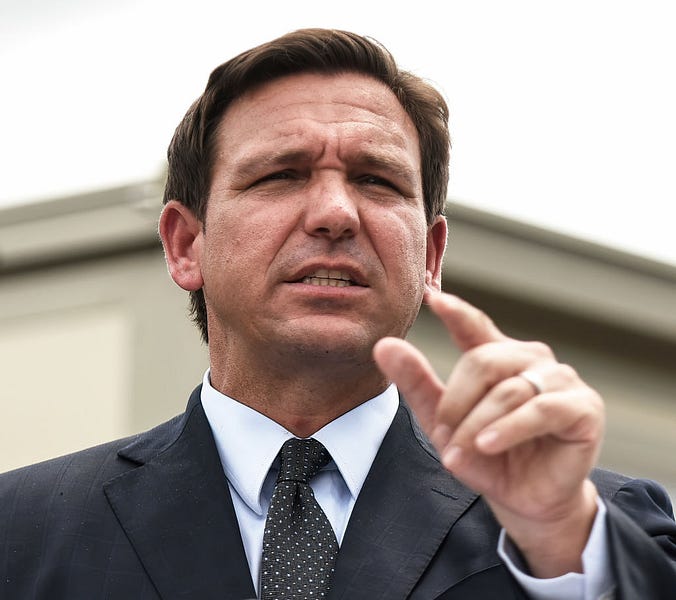
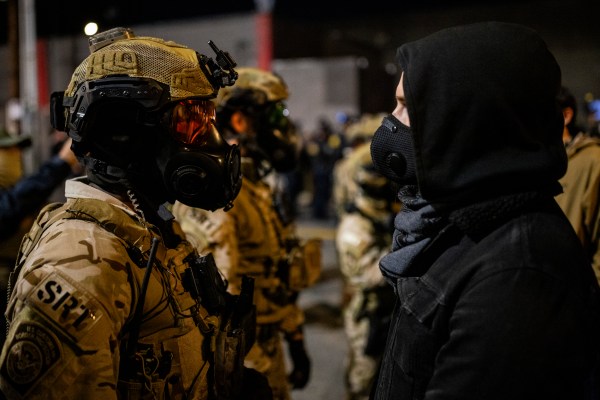


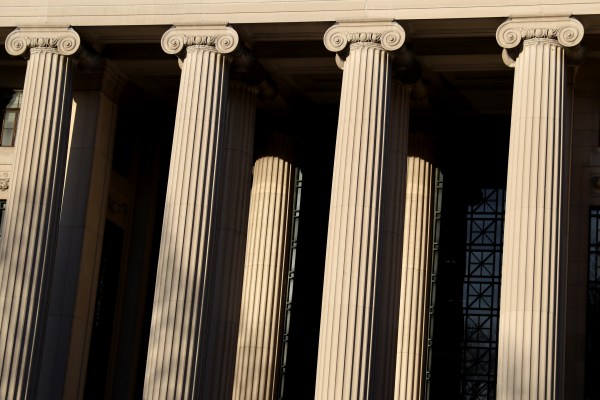
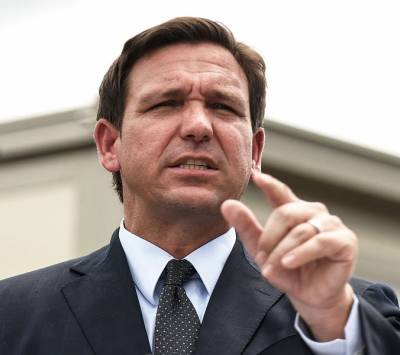
Please note that we at The Dispatch hold ourselves, our work, and our commenters to a higher standard than other places on the internet. We welcome comments that foster genuine debate or discussion—including comments critical of us or our work—but responses that include ad hominem attacks on fellow Dispatch members or are intended to stoke fear and anger may be moderated.
With your membership, you only have the ability to comment on The Morning Dispatch articles. Consider upgrading to join the conversation everywhere.